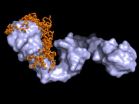(Press-News.org) WASHINGTON, D.C. – February 27, 2014 – The control and elimination of neglected tropical diseases (NTDs) is one of the most cost-effective ways Indonesia can sustain economic growth and reduce inequality, said scientists today in an analysis published in PLOS Neglected Tropical Diseases. While Indonesia is poised to defeat NTDs by 2020, it has an opportunity to scale up national programs, integrate NTDs with other development efforts, strengthen coordination and enhance collaboration among key partners.
The analysis calls NTDs "one of the most potent forces" trapping Indonesia's citizens, especially women and children, in a cycle of poverty. Approximately 111 million people – or 46 percent of the population – live on less than $2 per day, while approximately 44 million people – or 18 percent of the population – live on less than $1.25 per day.
"Today, 70 percent of the poorest are in fast growing economies and middle income countries like Indonesia. Indonesia's commitment to and investment in controlling and eliminating NTDs could lift millions of Indonesians out of poverty and empower them to lead healthy, productive lives, benefiting the nation as a whole and assuring an equitable distribution of the wealth generated by economic growth," said Lorenzo Savioli, MD, director of the Department of Control of NTDs at the World Health Organization (WHO). "Indonesia's leadership in carrying out an ambitious national effort to tackle NTDs through its Ministry of Health, in collaboration with WHO and other partners, would also help achieve the WHO NTD roadmap goals by 2020."
Indonesia has the second highest burden of NTDs worldwide. An estimated 195 million people – including 50 million children – are at risk for soil-transmitted helminths, 125 million people are at risk for lymphatic filariasis and approximately 25,000 – 50,000 people are at risk for schistosomiasis. The number of dengue cases reported annually to the WHO ranks Indonesia as having the second largest number of cases worldwide, with all four serotypes represented. Additional NTDs are listed in the analysis.
"As Southeast Asia's largest economy, G20 leader, co-chair of the United Nation's High Level Panel on the post-2015 development agenda, and ASEAN member, Indonesia is clearly positioned to make significant advances against NTDs," said Peter Hotez, MD PhD, president of the Sabin Vaccine Institute, director of the Sabin Vaccine Institute and Texas Children's Hospital Center for Vaccine Development and dean of the National School of Tropical Medicine at Baylor College of Medicine. "Indonesia can improve the lives of its most marginalized citizens by continuing to prioritize NTDs and ensuring that treatment and prevention programs reach all vulnerable communities."
NTDs cause anemia, malnutrition, disability, and stigma – preventing children from attending school, keeping adults from working, and increasing the consequences of other diseases – thereby contributing to decreases in human capital and worker productivity.
INFORMATION:
About The Sabin Vaccine Institute
The Sabin Vaccine Institute (Sabin) is a non-profit, 501(c)(3) organization of scientists, researchers and advocates dedicated to reducing needless human suffering from vaccine-preventable and neglected tropical diseases (NTDs). Since its founding in 1993 in honor of Dr. Albert B. Sabin, the developer of the oral polio vaccine, Sabin has been at the forefront of global efforts to eliminate, prevent and cure infectious and neglected tropical diseases.
Sabin develops new vaccines, advocates for increased use of existing vaccines and promotes expanded access to affordable medical treatments in collaboration with governments, academic institutions, scientists, medical professionals and other non-profit organizations. For more information please visit http://www.sabin.org.
About the National School of Tropical Medicine at Baylor College of Medicine
The National School of Tropical Medicine (NSTM) at Baylor College of Medicine is committed to addressing the world's most pressing tropical disease issues. The school applies strong traditions in basic, translational and applied biotechnology research brought by the BCM faculty and staff with the newly affiliated Sabin Vaccine Institute Product Development Partnership (Sabin-PDP). The NSTM works in partnership with Texas Children's Hospital, home of the Sabin Vaccine Institute & Texas Children's Hospital Center for Vaccine Development. For more information please visit http://www.bcm.edu/tropicalmedicine/.
About Texas Children's Hospital
Texas Children's Hospital, a not-for-profit organization, is committed to creating a community of healthy children through excellence in patient care, education and research. Consistently ranked among the top children's hospitals in the nation, Texas Children's has recognized Centers of Excellence in multiple pediatric subspecialties including the Cancer and Heart Centers, and operates the largest primary pediatric care network in the country. Texas Children's has completed a $1.5 billion expansion, which includes the Jan and Dan Duncan Neurological Research Institute; Texas Children's Pavilion for Women, a comprehensive obstetrics/gynecology facility focusing on high-risk births; and Texas Children's Hospital West Campus, a community hospital in suburban West Houston. For more information on Texas Children's, go to http://www.texaschildrens.org. Get the latest news from Texas Children's by visiting the online newsroom and on Twitter at twitter.com/texaschildrens.
Indonesia's competitiveness at risk from neglected diseases of poverty
NTDs have potential to undermine promising economic and development gains
2014-02-28
ELSE PRESS RELEASES FROM THIS DATE:
NASA saw rainfall rates increase before birth of Tropical Storm Faxai
2014-02-28
VIDEO:
NASA/JAXA's TRMM Satellite provided data of developing Tropical Storm Faxai to make this 3-D image that showed some towering thunderstorms in the area were reaching altitudes of up to 15.5km/~9.6...
Click here for more information.
The Tropical Rainfall Measuring Mission or TRMM satellite passed over System 93W in the Northwestern Pacific Ocean and saw rainfall rates increasing on February 27 in the developing tropical low pressure area. On February 28, the low organized ...
Peat soils as gigantic batteries
2014-02-28
This news release is available in German. Wetlands, including peatlands, have a high content of humic substances, which are organic compounds that form during incomplete decomposition of biomass. Under anoxic conditions, soil bacteria can use these organic compounds during respiration as electron acceptors. Many organisms (including us humans) instead use oxygen as the electron acceptor.
In the mid-1990s, researchers revealed that some anaerobic microorganisms in soils and sediments use humic substances as electron acceptors under anoxic conditions. However, the capacity ...
Giant sunspot makes third trip across the sun
2014-02-28
A giant sunspot – a magnetically strong and complex region on the sun's surface – has just appeared over the sun's horizon. This is the third trip for this region across the face of the sun, which takes approximately 27 days to make a complete rotation.
Scientists track sunspots that are part of active regions, which often produce large explosions on the sun such as solar flares and coronal mass ejections, or CMEs. Each time an active region appears it is assigned a number. Active regions that have survived their trip around the back of the sun and reappear are assigned ...
New fast and furious black hole found
2014-02-28
A team of Australian and American astronomers have been studying nearby galaxy M83 and have found a new superpowered small black hole, named MQ1, the first object of its kind to be studied in this much detail.
Astronomers have found a few compact objects that are as powerful as MQ1, but have not been able to work out the size of the black hole contained within them until now.
The team observed the MQ1 system with multiple telescopes and discovered that it is a standard-sized small black hole, rather than a slightly bigger version that was theorised to account for all ...
Researchers discover unusual genetic mutation linked to adolescent liver cancer
2014-02-28
In the race for better treatments and possible cures, rare diseases are often left behind. In a collaboration of researchers at The Rockefeller University, Memorial Sloan Kettering Cancer Center and the New York Genome Center (NYGC), an unusual mutation has been found that is strongly linked to one such disease: a rare liver cancer that affects teens and young adults. The results, published this week in Science, suggest that the mutation plays a key role in the development of the disease, called fibrolamellar hepatocellular carcinoma, and may also underlie more common cancers ...
Retention leads to discipline problems in other kids
2014-02-28
DURHAM, N.C -- When students repeat a grade, it can spell trouble for their classmates, according to a new Duke University-led study of nearly 80,000 middle-schoolers.
In schools with high numbers of grade repeaters , suspensions were more likely to occur across the school community. Discipline problems were also more common among other students, including substance abuse, fighting and classroom disruption.
Public debate typically focuses on how retention affects an individual student's academic performance, said lead author Clara Muschkin. So she and her colleagues ...
Dangerous mistaken identity
2014-02-28
This news release is available in German.
Proteins like the so-called heat shock protein Hsp90 play an important role in almost all processes within human cells. They help other proteins fold into their three-dimensional structure or return damaged proteins back into their proper shape.
Recently, there has been increasing evidence indicating that the heat shock protein HSP90 may also be involved in the folding processes of the tau protein. Deposits of tau proteins in brain cells are typical for Alzheimer's disease and are held responsible for decaying nerve ...
Diabetes and obesity more common in socioeconomically deprived regions
2014-02-28
Living in a socioeconomically deprived region is a risk factor for being affected by diabetes mellitus and obesity. This holds true regardless of the individual social status of the inhabitants. This is the conclusion reached by scientists from the Institute of Health Economics and Health Care Management (IGM) at the Helmholtz Zentrum München (HMGU) and the Department of Epidemiology and Health Monitoring at the Robert Koch Institute (RKI) in Berlin. "Regional factors, such as the population's average income, unemployment or quality of the living environment can affect ...
Unearthing key function of plant hormone
2014-02-28
This news release is available in German.
Plants, like animals, employ hormones as messengers, which coordinate growth and regulate how they react to the environment. One of these plant hormones, auxin, regulates nearly all aspects of plant behavior and development, for example phototropism, root growth and fruit growth. Depending on the context, auxin elicits a range of responses such as cell polarization or division. In this week's edition of Science (DOI:10.1126/science.1245125), a team of researchers including Jiri Friml from IST Austria and led by Zhenbiao ...
Scientists discover the specific types of macrophages that affect Crohn's disease severity
2014-02-28
For those coping with Crohn's disease, a new research report published in the Journal of Leukocyte Biology offers hope for the development of new and more effective drugs. In the report, scientists show for the first time, precisely what type of immune cells are involved in driving the inflammation process in the disease. With this knowledge, new compounds can be identified which reduce the activity of these cells or lessen their inflammatory effects.
"By increasing the knowledge on the different macrophage subsets in the intestine and their blood counterparts, we hope ...
LAST 30 PRESS RELEASES:
How much sleep do teens get? Six-seven hours.
Patients regain weight rapidly after stopping weight loss drugs – but still keep off a quarter of weight lost
GLP-1 diabetes drugs linked to reduced risk of addiction and substance-related death
Councils face industry legal threats for campaigns warning against wood burning stoves
GLP-1 medications get at the heart of addiction: study
Global trauma study highlights shared learning as interest in whole blood resurges
Almost a third of Gen Z men agree a wife should obey her husband
Trapping light on thermal photodetectors shatters speed records
New review highlights the future of tubular solid oxide fuel cells for clean energy systems
Pig farm ammonia pollution may indirectly accelerate climate warming, new study finds
Modified biochar helps compost retain nitrogen and build richer soil organic matter
First gene regulation clinical trials for epilepsy show promising results
Life-changing drug identified for children with rare epilepsy
Husker researchers collaborate to explore fear of spiders
Mayo Clinic researchers discover hidden brain map that may improve epilepsy care
NYCST announces Round 2 Awards for space technology projects
How the Dobbs decision and abortion restrictions changed where medical students apply to residency programs
Microwave frying can help lower oil content for healthier French fries
In MS, wearable sensors may help identify people at risk of worsening disability
Study: Football associated with nearly one in five brain injuries in youth sports
Machine-learning immune-system analysis study may hold clues to personalized medicine
A promising potential therapeutic strategy for Rett syndrome
How time changes impact public sentiment in the U.S.
Analysis of charred food in pot reveals that prehistoric Europeans had surprisingly complex cuisines
As a whole, LGB+ workers in the NHS do not experience pay gaps compared to their heterosexual colleagues
How cocaine rewires the brain to drive relapse
Mosquito monitoring through sound - implications for AI species recognition
UCLA researchers engineer CAR-T cells to target hard-to-treat solid tumors
New study reveals asynchronous land–ocean responses to ancient ocean anoxia
Ctenophore research points to earlier origins of brain-like structures
[Press-News.org] Indonesia's competitiveness at risk from neglected diseases of povertyNTDs have potential to undermine promising economic and development gains






